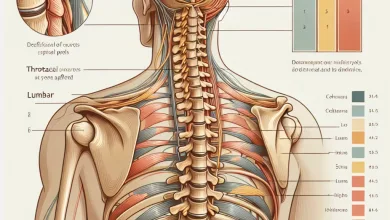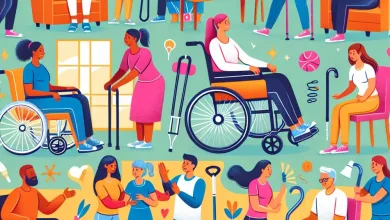Empowering Parenthood with Disabilities: Essential Steps & Resources for Disabled Parents

Table of Contents
Navigating the Journey of Parenthood with a Disability
Parenthood is a rewarding journey filled with joy, challenges, and endless learning. For individuals with disabilities, this journey requires unique considerations and preparations. This comprehensive guide is designed to empower you by providing essential steps and resources to navigate parenthood effectively. Whether you are Preparing for Parenthood with Disabilities or looking for Accessible Parenting Products, this post covers everything you need to know.
Understanding the Landscape of Disabled Parenthood
Before diving into the practical aspects, it’s essential to recognize that disabled parents are just as capable of providing love, care, and support to their children as any other parent. While challenges may arise, these hurdles can be overcome with the proper preparation and resources, leading to a fulfilling parenting experience.
Preparing for Parenthood with Disabilities
Preparing for parenthood with disabilities involves careful planning and consideration. Here are some critical steps to take:
- Medical Consultation: Consult with your healthcare providers to discuss any potential impacts of your disability on pregnancy or childcare.
- Assess Your Needs: Evaluate what additional support or adaptations you might need to care for a child effectively.
- Research and Connect: Look for resources and connect with other disabled parents to learn from their experiences.
- Financial Planning: Consider the potential additional costs associated with parenting with a disability and plan accordingly.
- Home Evaluation: Assess your living space for necessary modifications to accommodate your needs and those of a child.
Accessible Parenting Products: Making Childcare Easier
One of the most crucial aspects of empowering parenthood with disabilities is finding and utilizing accessible parenting products. These specially designed items can make a difference in day-to-day childcare tasks. Some examples include:
- Adaptive Baby Carriers: Designed for parents with limited mobility or strength.
- Side-Opening Cribs: Allow wheelchair users to access their babies easily.
- One-Handed Diaper Changing Systems: Perfect for parents using only one hand.
- Adaptive Feeding Tools: Such as bottle holders or adaptive high chairs.
- Adaptive Strollers: Designed for ease of use and mobility, adaptive strollers provide smooth handling and ergonomic comfort, making outings with your child more accessible and enjoyable.
- Accessible Cribs: Featuring side-opening panels and adjustable heights, accessible cribs offer convenient access and reduce strain, ensuring a safer and more comfortable experience for both parent and baby.
- Adjustable-Height Changing Tables: These tables allow you to set the perfect height for diaper changes, minimizing bending and lifting and promoting a more comfortable and efficient routine.
When shopping for these products, consider your specific needs and how each item can be integrated into your daily routine. Remember, what works for one parent may not work for another, so don’t be afraid to try different options.
Building a Support Network for Disabled Parents
A strong support network for disabled parents is invaluable. This network can provide emotional support, practical assistance, and shared experiences. Here’s how you can build and maintain a robust support system:
- Join Support Groups: Look for local or online groups specifically for disabled parents.
- Connect with Other Parents: Reach out to other parents in your community, disabled or not, for playdates and shared experiences.
- Involve Family and Friends: Don’t hesitate to ask for help from loved ones when needed.
- Seek Professional Support: Consider working with a therapist or counsellor specializing in disability and family issues.
Remember, asking for help is not a sign of weakness but a testament to your commitment to being your best parent.
Exploring Financial Resources for Disabled Parents
Parenting can be expensive, and disabilities can sometimes add to these costs. Fortunately, there are financial resources for disabled parents available to help ease the burden. Some options to explore include:
- Government Assistance Programs, such as Supplemental Security Income (SSI) or Social Security Disability Insurance (SSDI), are available.
- Grants for Home Modifications: To help make your living space more accessible for parenting.
- Tax Credits: Some regions offer additional tax credits for disabled parents.
- Non-Profit Organizations: Many offer financial assistance or low-cost equipment for disabled parents.
It’s important to research and understand the eligibility requirements for these resources. Don’t hesitate to seek help from a financial advisor or social worker who can guide you.
Leveraging Assistive Technology for Parenting
Assistive technology for parenting has come a long way in recent years. These tools can significantly enhance your ability to care for your child independently. Some examples include:
- Smart Home Devices: Voice-activated systems can help control lights and temperature and even monitor your baby.
- Mobile Apps: Numerous apps are designed to assist with baby monitoring, feeding schedules, and developmental tracking.
- Adaptive Strollers: These can be attached to wheelchairs or designed for one-handed use.
- Remote-Controlled Devices: Such as bottle warmers or white noise machines that can be operated from a distance.
When choosing assistive technology, consider your specific needs and how the technology will integrate into your daily life. It’s also worth checking if any of these technologies are covered by insurance or available through assistive technology lending programs.
Home Modifications for Disabled Parents
Creating an accessible living space is crucial for empowering parenthood with disabilities. Home modifications for disabled parents can range from simple adjustments to more significant renovations. Some key areas to consider include:
- Bathroom Accessibility: Install grab bars, a roll-in shower, or a height-adjustable changing table.
- Kitchen Adaptations: Lower countertops, install pull-out shelves, or add a roll-under sink.
- Nursery Design: Ensure wide doorways, create open floor space for mobility, and install easy-to-reach storage.
- Safety Features: Add non-slip flooring, secure loose cords, and install additional lighting where needed.
Remember, these modifications make parenting tasks easier and create a safer environment for you and your child.
Parenting Classes for Individuals with Disabilities
Knowledge is power, and this is especially true regarding parenting. Parenting classes for individuals with disabilities can provide valuable skills and confidence. These classes often cover:
- Adaptive Parenting Techniques: Learn methods tailored to your specific abilities.
- Child Development: Understand your child’s growth stages and how to support them.
- Safety and First Aid: Learn essential safety skills adapted to your needs.
- Emotional Wellbeing: Discuss the unique emotional challenges of parenting with a disability.
Look for classes offered by local hospitals, community centres, or disability organizations. Many now offer online options, making participating from the comfort of your home more accessible.
Mastering Digital Organization for Parents with Disabilities
In today’s digital age, digital organization for parents with disabilities can be a game-changer. Here are some ways to leverage technology for better parenting organizations:
- Digital Calendars: Keep track of doctor’s appointments, playdates, and important milestones.
- Meal Planning Apps: Organize grocery lists and plan meals in advance.
- Baby Tracking Apps: Monitor feeding times, diaper changes, and sleep patterns.
- Cloud Storage: Store and easily access important documents and memorable photos.
- Voice-Activated Assistants: Set reminders, make lists, or control smart home devices hands-free.
By embracing these digital tools, you can streamline many aspects of parenting, freeing up more time and energy for bonding with your child.
Finding Accessible Housing for Disabled Families
For many disabled parents, accessible housing for disabled families is a top priority. When searching for a suitable home, consider:
- Location: Proximity to medical facilities, schools, and support networks.
- Accessibility Features: Wide doorways, ramps, and elevator access (for multi-story buildings).
- Safety: Secure neighbourhoods with well-lit streets and sidewalks.
- Adaptability: Potential for future modifications as your family’s needs change.
Don’t hesitate to work with a realtor who specializes in accessible housing or contact disability housing organizations for assistance in your search.
Pros and Cons of Different Parenting Approaches for Disabled Parents
| Approach | Pros | Cons |
| Highly Structured Routine | – Predictability can ease stress – Easier to plan necessary assistance | – Less flexibility – May be challenging as child grows |
| Flexible Parenting | – Adaptable to changing needs – Can reduce pressure on parent | – May require more on-the-spot problem solving – Can be unpredictable |
| Technology-Focused | – Can significantly increase independence – Offers innovative solutions | – Can be expensive – May require tech troubleshooting skills |
| Community-Centered | – Strong support network – Diverse experiences for child | – May require time to build the right community |
Frequently Asked Questions for Disabled Parents
How can I prepare my home for a baby as a disabled parent?
- Evaluate your home for accessibility.
- Install adaptive equipment like side-opening cribs.
- Create open spaces for more effortless mobility.
- Ensure essential items are within easy reach.
- Consider using smart home technology for added convenience.
Are there specific support groups for disabled parents?
- Yes, there are many available both online and in-person.
- Check with local disability organizations for recommendations.
- Join social media groups dedicated to disabled parenting.
- Inquire at your local hospital or community centre.
How can I find accessible parenting classes?
- Contact local hospitals or community centres.
- Look for online courses specifically designed for disabled parents.
- Reach out to disability organizations for recommendations.
- Ask your healthcare provider for referrals.
What financial assistance is available for disabled parents?
- Government programs like SSI (Supplemental Security Income) or SSDI (Social Security Disability Insurance).
- Grants for home modifications.
- Tax credits (which may vary by region).
- Non-profit organizations offering financial aid or equipment.
How can I manage fatigue as a disabled parent?
- Establish a routine that includes rest periods.
- Use energy-saving devices and techniques.
- Don’t hesitate to ask for help when needed.
- Practice self-care and stress management techniques.
Conclusion: Embracing Your Unique Parenting Journey
Empowering parenthood with disabilities is about recognizing your strengths, creatively addressing challenges, and building a supportive environment for you and your child. Remember, there’s no one-size-fits-all approach to parenting. Your journey will be unique, filled with its own set of triumphs and challenges.
By utilizing accessible products, leveraging technology, building a solid support network, and making necessary adaptations, you can create a nurturing and loving environment for your child. Your disability doesn’t define your parenting; your love, dedication, and resilience do.
As you embark on this incredible journey, remember you’re not alone. There’s a whole community of disabled parents out there ready to share experiences, offer support, and celebrate your successes. Embrace your unique perspective – it’s one of the many gifts you’ll pass on to your child.



